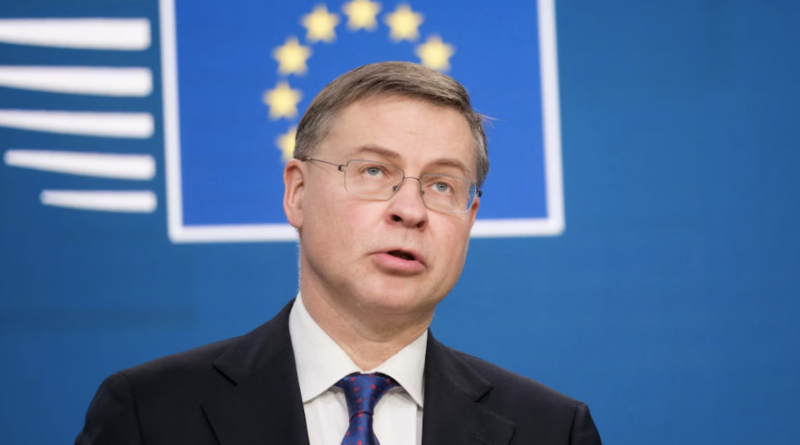The European Commission is taking a hard look at the newly minted trade agreement between the United States and the United Kingdom to figure out what ripple effects it might cause—not just for the EU’s 27 member states, but for global trade too.
Valdis Dombrovskis, the EU’s economy chief, confirmed on May 12 that Brussels is “closely analyzing” the terms to gauge any impact on European interests.
The transatlantic deal, unveiled on May 8, promises lower tariffs on certain goods—Washington is dialing down duties on cars and steel, and both sides will enjoy better access to each other’s agricultural markets. Sounds like a win-win, but Brussels isn’t jumping for joy just yet.
That’s because the EU is locked in its own tense trade talks with Washington. The bloc wants to see the rollback of steep US tariffs—namely, the blanket 20% on most EU imports and 25% on steel, aluminum, cars, and car parts. President Trump has given both sides until July 8 to hash out a new deal. Until then, those tariffs mostly stick—though there’s been a temporary dip to 10% on most EU goods.
Dombrovskis made it clear: the EU would much prefer a negotiated outcome, and it plans to use this narrow window of time to try to secure one. Still, they’re not taking chances. If the talks hit a wall, Brussels has a €95 billion counterstrike ready, targeting American imports with retaliatory duties. That proposal was unveiled on May 8.
Meanwhile, geopolitical tensions were boiling over elsewhere. France revealed that during a May 10 meeting in Ukraine, European leaders asked the European Commission to draw up a new round of biting sanctions aimed squarely at Russia’s oil industry and financial institutions—should Moscow refuse to agree to a ceasefire.
This would mark the EU’s 17th sanctions package since the conflict began, but it wouldn’t stop there. Speaking from Normandy, French Foreign Minister Jean-Noël Barrot said plans were underway for even tougher restrictions that would go beyond the upcoming package.
“Our goal is to increase the pressure,” Barrot explained, “and we’re calling on the Commission to prepare a much heavier sanctions blow to push Putin toward peace.” His remarks came after a joint call with EU foreign ministers and US Secretary of State Marco Rubio.
The diplomatic flurry follows news that leaders from France, Germany, Poland, and the UK had convened in Ukraine, while others joined via video—among them European Commission President Ursula von der Leyen.
In a dramatic twist, Trump offered on May 12 to participate in the next round of Ukraine-Russia talks set for May 15 in Istanbul. Ukrainian President Volodymyr Zelensky confirmed he’d be there, and said he’d be ready to sit down with Putin if the Russian president shows up. As of now, the Kremlin hasn’t responded.
But here’s the catch—European officials say the talks won’t mean much without a ceasefire in place. Missiles flying overhead and drones buzzing through the sky don’t exactly make for peaceful negotiations.
Barrot didn’t mince words: “Putin asked for a meeting with Zelensky, and Zelensky agreed. Now, Putin has to follow through. If he doesn’t agree to a ceasefire, we’re ready to hit back with powerful, sweeping sanctions.”
Adding fuel to the fire, US lawmakers are also drafting a sanctions bill that would slap a jaw-dropping 500% tariff on any country buying Russian oil. It’s all shaping up to be a pivotal moment—with trade, diplomacy, and sanctions hanging in the balance.




